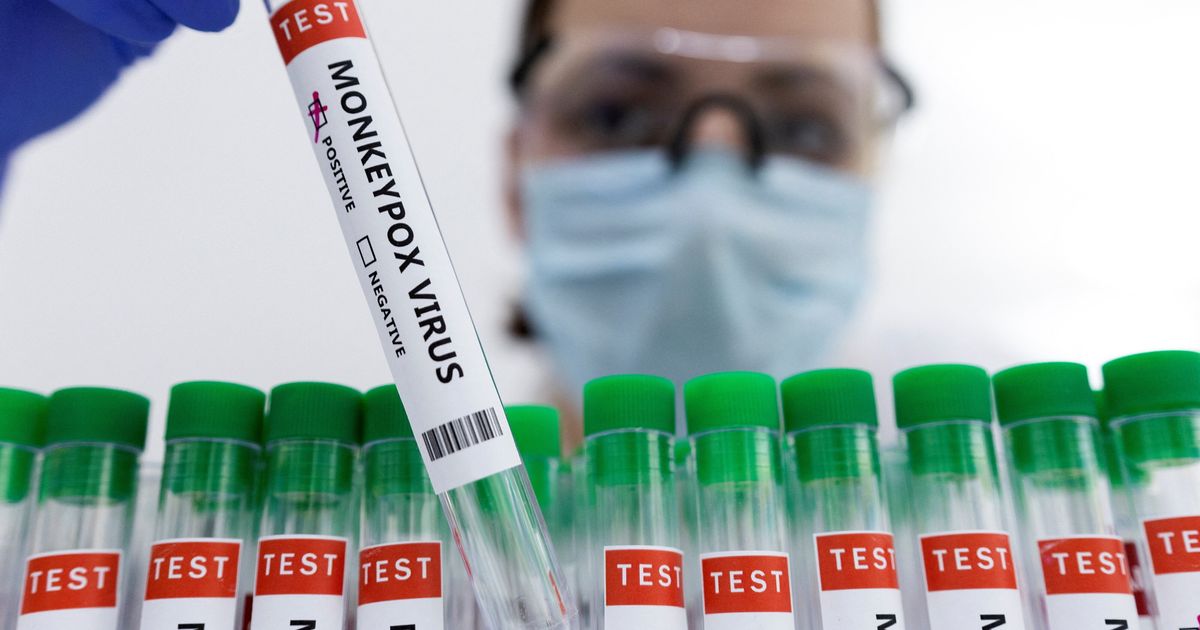HEALTH – Three cases of monkeypox were detected in France as of May 23, Public Health France announced, two more than three days earlier, when the first case was reported on Friday May 20.
“To date, these cases have occurred mainly, but not only, in men who have sex with men (MSM), without direct links with people returning from endemic areas”, specifies Public Health France.
The latter also adds that « the current European context constitutes an alert and suggests contamination in Europe » and that the long-term monitoring of this disease called in English « Monkeypox » passes in France by « the system of compulsory declaration is reinforced and information and alert messages are sent to healthcare professionals”.
“Less than 200 cases” identified in non-endemic countries
While cases of monkey pox continue to increase outside endemic areas of Africa, particularly in Europe, the World Health Organization (WHO) confirmed on Monday May 23 an “atypical” situation.
Cases have so far been confirmed in a dozen European countries but also in Australia, Canada and the United States. Nine EU countries (Austria, France, Belgium, Germany, Italy, Netherlands, Spain, Portugal, Sweden) have 69 cases so far, according to the European Union Diseases Agency (ECDC) .
There are currently “less than 200 confirmed and suspected cases” in these non-endemic countries, according to Maria Van Kerkhove, in charge of the fight against Covid-19 but also emerging diseases and zoonoses at the WHO. This figure relates only to countries where the presence of monkeypox is unusual.
Possibility of “stopping” transmission, according to the WHO
The WHO, however, expressed confidence in the possibility of “stopping” the transmission of the disease between humans in these “non-endemic” countries, during a question and answer session on Monday.
« It’s a situation that can be controlled, particularly in the countries where we see this outbreak happening in Europe, » Ms Van Kerkhove said. The early identification and isolation of cases are part of the measures recommended by the WHO and by the ECDC, she stressed, adding that there were currently no serious cases.
The disease, a less dangerous cousin of smallpox, eradicated for about forty years, is endemic in 11 West African countries and in Central Africa. It first results in a high fever and quickly evolves into a rash, with the formation of scabs.
What intrigues and worries experts is the simultaneous appearance of cases in many countries, in people who, for the most part, had no direct link to the countries where the disease is endemic.
“Very low” probability of contagion for the general population
According to initial analyses, such as a first genome sequencing in Portugal, the variant of the virus would belong to the strain present in West Africa, associated with a less serious disease than the other variant of monkeypox.
It is not yet known whether the virus has mutated, observed Rosamund Lewis, in charge of smallpox at the WHO emergency program, but these orthopoxviroses “tend to be quite stable”.
For the general population, the probability of contagion is “very low”, judged the European Center for Disease Prevention and Control (ECDC) in its first risk assessment since the unusual appearance of dozens of cases in Europe and in North America.
“Not a homosexual disease”
“However, the likelihood of transmission of the virus through close contact, for example during sex with people with multiple partners, is considered high,” the agency noted in its report.
Monkeypox is usually transmitted to humans by wild rodents or primates. But human-to-human transmission is also possible, by direct contact with skin lesions or mucous membranes of a sick person, as well as by droplets.
While this virus can be caught through sexual activity, it is not a sexually transmitted disease, stressed Andy Seale, strategic adviser for WHO’s global programs on HIV, hepatitis and sexually transmitted infections. transmissible.
In the current episode, several cases have been identified among men who have sex with men. But “it is not a homosexual disease, as some people on social networks have tried to label it”, insisted this expert. UNAIDS warned on Sunday that the homophobic and racist slippages sometimes seen in comments on monkeypox could “quickly undermine the fight against the epidemic”.
A large global meeting with all the experts from many branches is to be held next week to discuss the current episode.
See also on The HuffPost: Diogenes Syndrome Is Underrecognized, This Extreme Cleaner Wants It More
